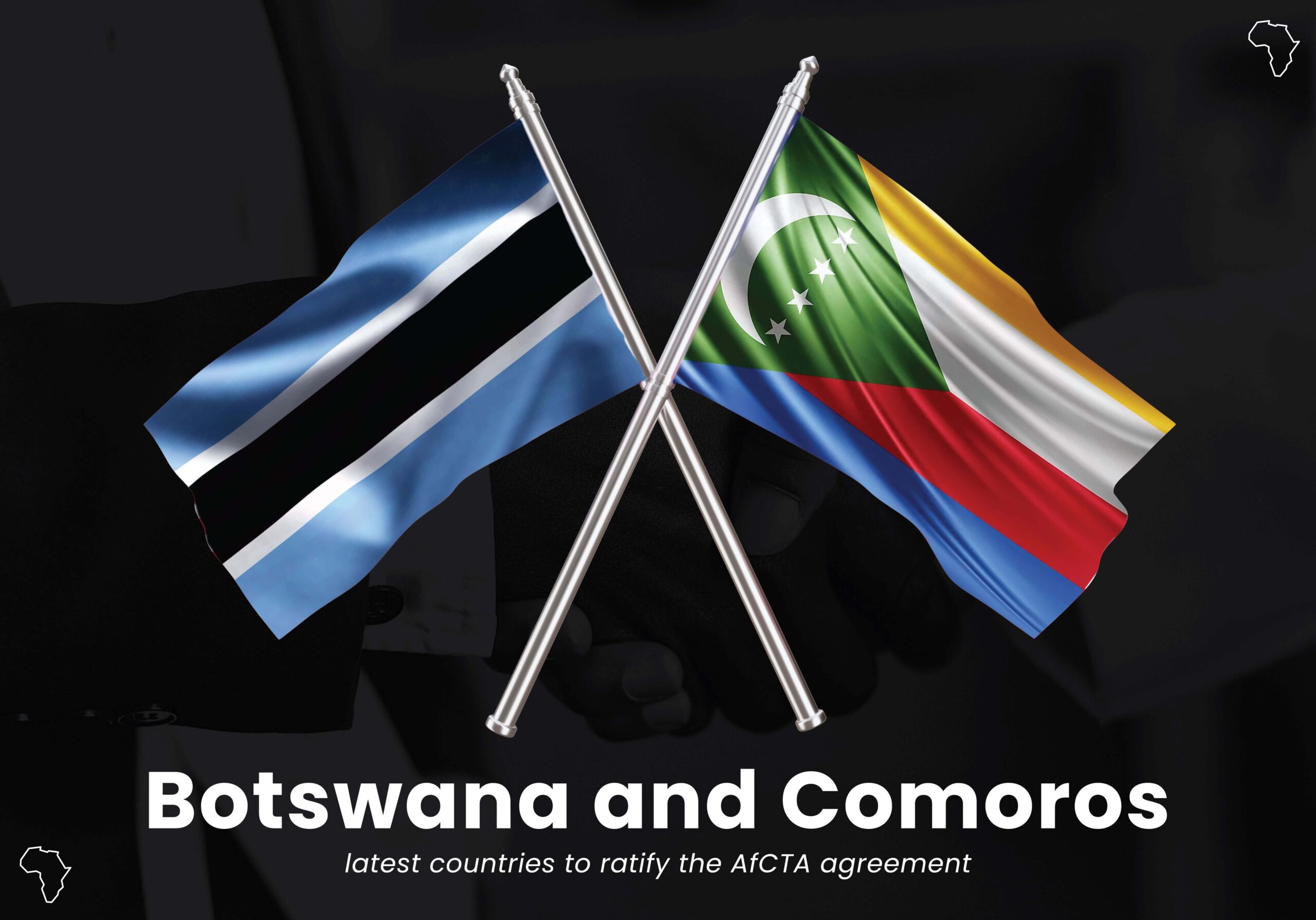The African Continental Free Trade Area (AfCFTA) aimed to create a single market for goods and services in Africa, got another boost after two more countries handed over instruments of ratification to the African Union Commission Chairperson, Moussa Faki Mahamat, during February’s session of the African Union.
Instruments of ratification are documents by which a state expresses its consent to be bound by a treaty.
Botswana and Comoros became the 45th and 46th state party members of the AfCFTA after depositing their instruments of ratification on the sidelines of the 36th Ordinary Session of the AU held between February 18 and 19, 2023, in Addis Ababa.
The theme of this year’s summit was The Year of AfCFTA: Acceleration of the African Continental Free Trade Area Implementation.
“We have ratified the AfCFTA and SACU (Southern African Customs Union) has also placed its offer on tariff removal on goods to the AfCFTA,” said Botswana’s Trade and Industry minister, Mmusi Kgafela.
“I am waiting for the offer to be verified, after which Batswana can start trading under AfCFTA by exporting goods duty-free. It might take a month or so to complete this work.”
Wamkele Mene, secretary-general of the AfCTA secretariat, revealed in a Twitter post that South Sudan could be next in line to ratify the agreement.
“I met Deng Dau Malek, South Sudan Foreign Affairs Minister… he shared that South Sudan’s ratification process would be completed within three months,” Mene wrote.
While Botswana and Comoros await verification and admission, the two ratifications serve as a much-needed step after ratification delays that have limited full exploitation.
The ratifications also raise hopes for a fully integrated African market, pointing to a promising future for the union’s Agenda 2063.
The focus now shifts to the preparedness among SMEs and businesses to drive intra-continental trade when the agreement is entirely in force.
Challenging SMEs in Africa to act quickly, Botswana president, Mokgweetsi Masisi, said: “It’s launch time…they better get to business, get to work, and all we have to do is facilitate and enhance that.”
With the agreement’s establishing clauses requiring 24 ratifications by member state parties to be in motion, the AfCFTA is already rolling, with several African countries already partaking in the pilot programme.
However, delayed ratification by some signatories has limited the full realisation of the continental common market.
The two parties increased the ratified parties’ percentage to 85%, with only Morocco, Libya, Sudan, South Sudan, Mozambique, and Madagascar yet to ratify the agreement.
Despite completing domestic ratification, Somalia is yet to submit its ratification instruments.
“We shall leave no stone unturned to ensure that AfCFTA becomes a reality,” Comoros president, Azali Assoumani, who took over as rotating AU chairman, told the closing session.
The African Continental Free Trade Area aims to reduce all trade costs – including eliminating 90% of tariffs – and enable Africa to integrate further into global supply chains.
bird story agency
The African Continental Free Trade Area (AfCFTA), which aims to create a single market for goods and services in Africa, received a significant boost when Botswana and Comoros became the 45th and 46th state parties by submitting their instruments of ratification. This took place during the 36th Ordinary Session of the African Union in Addis Ababa in February 2023.
Botswana's Trade and Industry Minister indicated that once verification processes are completed, Batswana can start trading duty-free under AfCFTA. South Sudan might be the next nation to ratify the agreement within three months.
The ratifications by Botswana and Comoros are crucial for progressing the full implementation of the AfCFTA, which has faced delays. Currently, 85% of African countries have ratified the agreement, with a few nations, including Morocco and Libya, yet to do so.
The AfCFTA aims to reduce trade costs by eliminating 90% of tariffs, promoting better integration into global supply chains. The emphasis is now on the preparedness of SMEs and businesses to take advantage of the opportunities offered by this free trade agreement.






